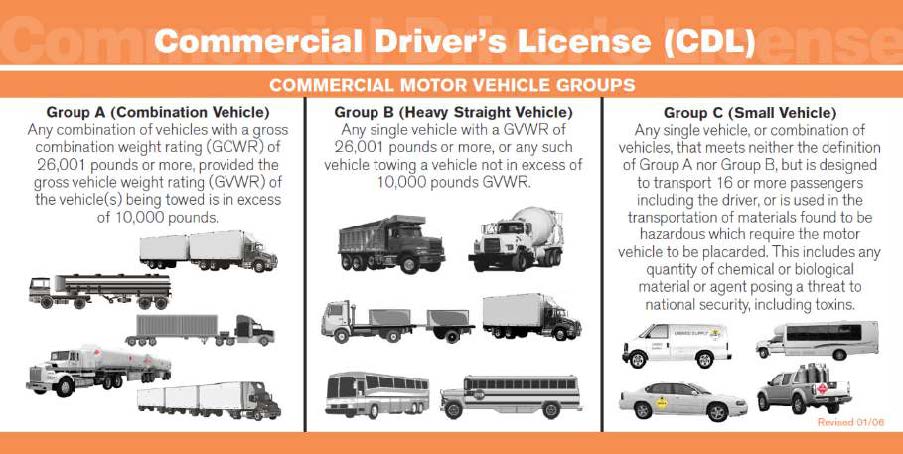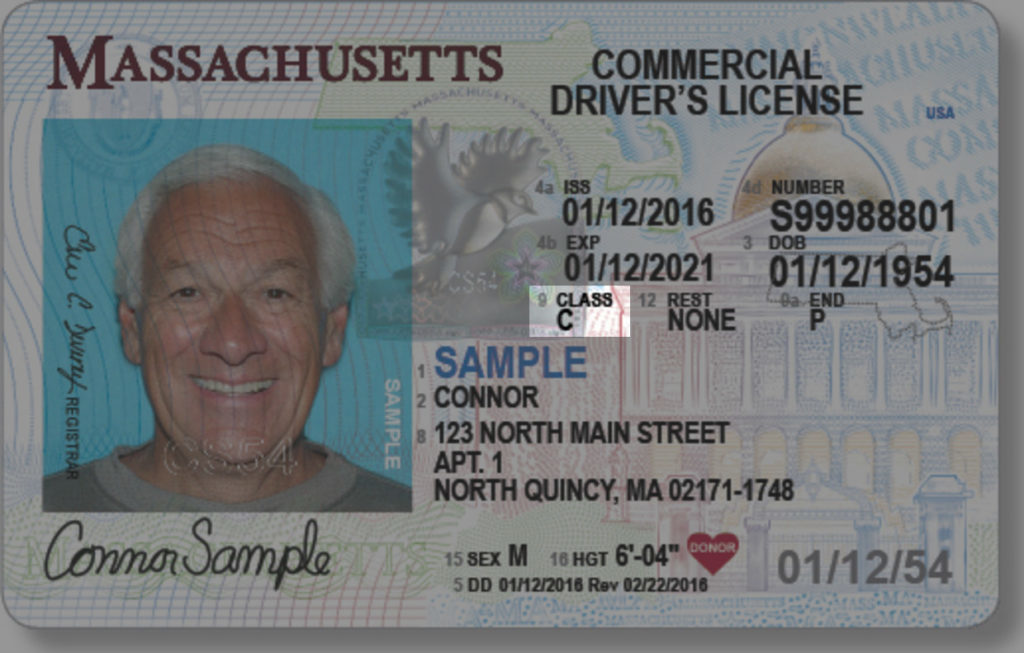Instructions:
Identify the driver’s license class as indicated on the license.
Definition:
A unique set of alphanumeric characters assigned by the authorizing agent issuing a driver license to the individual.
Rationale:
This information is mandated by FMCSA for commercial drivers. This element is critical for providing linkage between the crash and driver license files at the State level.
| Code | Attribute | Definition |
| A | Class A | Any combination of vehicles with a Gross Combination Weight Rating (GCWR) of 26,001 pounds or more, provided the GVWR of the vehicle(s) being towed is in excess of 10,000 pounds. Qualifies driver for operation of vehicles in classes B and C. |
| B | Class B | Any single vehicle with a Gross Vehicle Weight Rating (GVWR) of 26,001 or more pounds, or any such vehicle towing a vehicle not in excess of 10,000 pounds GVWR. Qualifies driver for operation of vehicles in class C. |
| C | Class C | Any single vehicle, or combination of vehicles, that does not meet the definition of Class A or Class B, but is either designed to transport 16 or more passengers, including the driver, or is used to transport materials found to be hazardous which require the motor vehicle to be placarded. |
| D | Class D | Any regular or standard driver license issued for the operation of automobiles and light trucks by States that separate these vehicles from Class C. Other class designation codes such as D, R and others may be used by States to indicate a regular driver license class. |
| M | Class M | Applies to motorcycles, mopeds, motor-driven cycles |
| 99 | Unknown | If this attribute is used, explanation in the narrative is recommended. |


Other Related Fields
Data Quality Audit Results
| Report Type | Complete | Incomplete | ||
| Local Police (electronic) | 540 | 90.8% | 55 | 9.2% |
| Local Police (paper) | 557 | 91.0% | 55 | 9.0% |
| State Police (electronic) | 540 | 86.7% | 83 | 13.3% |
| Total | 1637 | 89.5% | 193 | 10.5% |
License Class is a field that was completed appropriately in 90 percent of the reports reviewed. This field was incomplete in 13 percent of the reports submitted by State Police, which was the highest incomplete rate of the three submission types. This field presented the greatest challenge for law enforcement in cases where there was no license. There is no way for an officer to fill in information for an unlicensed driver. As a result, this field is often left blank. Law enforcement auditors also indicated a need for an ‘out of state’ license option.
